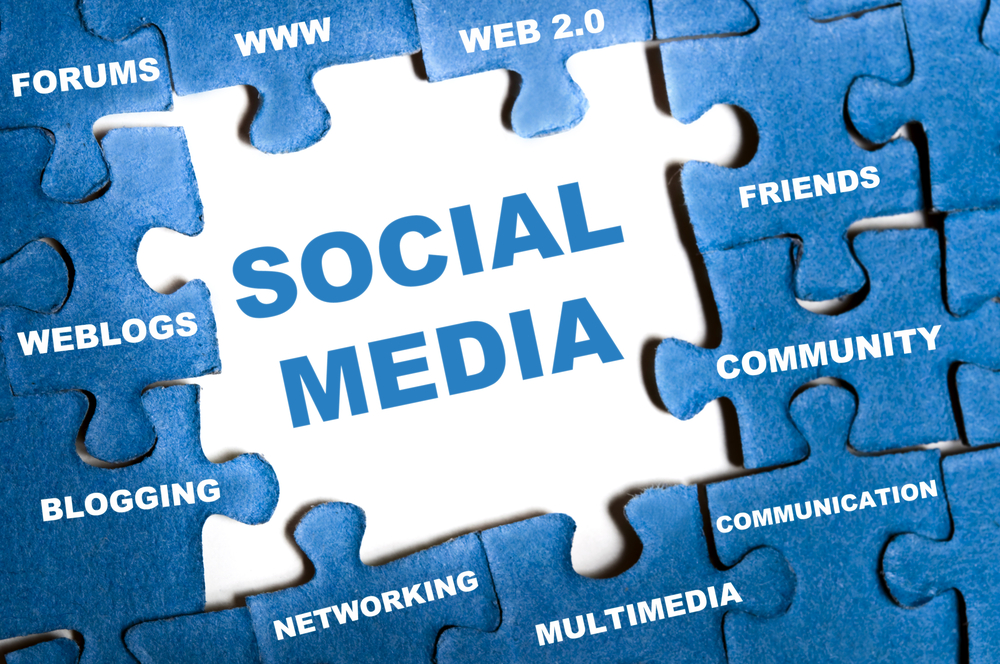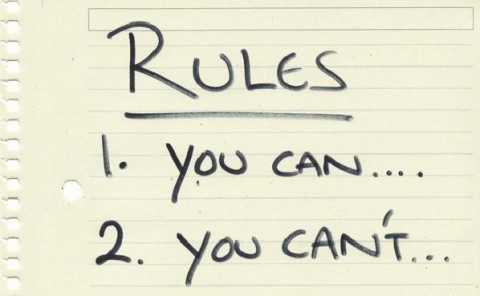 This post is both a continuation of my previous thoughts on social media in academia, and the product of several workshops and talks I’ve been asked to give on the topic this past year. Most notably, it is a response to and follow-up from a presentation and spirited discussion on social media at an impressive postgraduate conference at the University of Nottingham this month, Homeward Bound: Nation, Belonging and the American Home, and on the first day of the year it seems fitting to reflect on 2013 with a sketch of some of the concerns and questions I’ve come across over the past twelve months.
This post is both a continuation of my previous thoughts on social media in academia, and the product of several workshops and talks I’ve been asked to give on the topic this past year. Most notably, it is a response to and follow-up from a presentation and spirited discussion on social media at an impressive postgraduate conference at the University of Nottingham this month, Homeward Bound: Nation, Belonging and the American Home, and on the first day of the year it seems fitting to reflect on 2013 with a sketch of some of the concerns and questions I’ve come across over the past twelve months.
 Of course some of you may roll their eyes in frustration at my returning to this topic again as, arguably, a lot seems to be said on social media and academia these days, particularly online. However, this post is borne out of the fact that I feel we do not talk critically and inquisitively enough about social media with students (postgraduate and undergraduate) and among university staff. While such discussions are happening in many spaces and groups already, to me it seems that, predominantly, social media is still an area that too often is either sidelined in favour of “proper” academic issues, or is uncritically embraced in a REF-driven hunt for impact.
Of course some of you may roll their eyes in frustration at my returning to this topic again as, arguably, a lot seems to be said on social media and academia these days, particularly online. However, this post is borne out of the fact that I feel we do not talk critically and inquisitively enough about social media with students (postgraduate and undergraduate) and among university staff. While such discussions are happening in many spaces and groups already, to me it seems that, predominantly, social media is still an area that too often is either sidelined in favour of “proper” academic issues, or is uncritically embraced in a REF-driven hunt for impact.
 Whenever I’m asked to host a workshop or give a talk on social media as an academic tool, I try hard not to not make my sessions into simple advertisements for Twitter and blogging. Rather, what I always hope for is that audiences will feel inspired to ask some of the more probing and challenging questions about social media in an academic context so that, together, we can have rigorous discussions about its issues and potentials, and make informed decisions on our individual uses of it. These discussions, I feel, are something academics will have to increasingly engage in, not least because otherwise future (and perhaps inevitable) institutional decisions and policies about academics’ uses of social media may well be made by those least engaged and informed in this aspect of higher education and research. So, to broadcast my thoughts on the topic beyond the events at which I’ve previously presented and debated them, the following provides a brief breakdown of the issues and questions I’ve encountered most frequently in the past year or which I think remain largely ignored.
Whenever I’m asked to host a workshop or give a talk on social media as an academic tool, I try hard not to not make my sessions into simple advertisements for Twitter and blogging. Rather, what I always hope for is that audiences will feel inspired to ask some of the more probing and challenging questions about social media in an academic context so that, together, we can have rigorous discussions about its issues and potentials, and make informed decisions on our individual uses of it. These discussions, I feel, are something academics will have to increasingly engage in, not least because otherwise future (and perhaps inevitable) institutional decisions and policies about academics’ uses of social media may well be made by those least engaged and informed in this aspect of higher education and research. So, to broadcast my thoughts on the topic beyond the events at which I’ve previously presented and debated them, the following provides a brief breakdown of the issues and questions I’ve encountered most frequently in the past year or which I think remain largely ignored.
SOCIAL MEDIA SKILLS: WHO & HOW
 I have seen many social media endeavors that are conceived as a means of teaching as well as enabling students to disseminate their work. One particularly admirable project, for example, is Dr Helen Rogers‘ third-year Writing Lives module, in which students create blog posts and original research on an author they have chosen from the Burnett Archive of Working-Class Autobiographies. As part of the module, students also tweet about their authors, thus bringing largely unknown writers and their work into the public domain. This, of course, is only one of many inspiring ways in which academics have embraced social media as a teaching tool, and Dr Rosie Miles has authored the extensive Online Discussion in English Studies: A Good Practice Guide to Design, Moderation and Assessment.
I have seen many social media endeavors that are conceived as a means of teaching as well as enabling students to disseminate their work. One particularly admirable project, for example, is Dr Helen Rogers‘ third-year Writing Lives module, in which students create blog posts and original research on an author they have chosen from the Burnett Archive of Working-Class Autobiographies. As part of the module, students also tweet about their authors, thus bringing largely unknown writers and their work into the public domain. This, of course, is only one of many inspiring ways in which academics have embraced social media as a teaching tool, and Dr Rosie Miles has authored the extensive Online Discussion in English Studies: A Good Practice Guide to Design, Moderation and Assessment.
 Yet, I feel that overall we are still largely neglecting both student and staff skills training in this area. We frequently tend to fall into the trap of assuming that our students are not only innately computer-literate but that they know the conventions and strategies that make a professional online presence that can help them in their path beyond their undergraduate degrees. On my Express Yourself module I both acknowledge, address, and regularly experience this misconception when teaching my students how to create blogs and use social media to their advantage and as a professional tool. If we use a new assessment tool, we must train our students in using it, and it’s worth noting here that this also applies to a much more traditional mode of assessment: oral presentations (note, here, the difference between marking criteria and skills training; telling someone that the quality of their visual aid will be assessed does not tell them what makes a quality visual aid).
Yet, I feel that overall we are still largely neglecting both student and staff skills training in this area. We frequently tend to fall into the trap of assuming that our students are not only innately computer-literate but that they know the conventions and strategies that make a professional online presence that can help them in their path beyond their undergraduate degrees. On my Express Yourself module I both acknowledge, address, and regularly experience this misconception when teaching my students how to create blogs and use social media to their advantage and as a professional tool. If we use a new assessment tool, we must train our students in using it, and it’s worth noting here that this also applies to a much more traditional mode of assessment: oral presentations (note, here, the difference between marking criteria and skills training; telling someone that the quality of their visual aid will be assessed does not tell them what makes a quality visual aid).
 But academic staff, too, often lack the skills required to embrace the possibilities social media offers for higher education teaching as well as for research. Arguably, numerous institutions offer professional development courses in this area, but – in my experience – in many departments social media work (be it departmental Twitter accounts or blogs, or using social media in teaching) is almost automatically the responsibility of early-career researchers or postgraduates, who are seen to possess the skills for these tasks as a matter of course.
But academic staff, too, often lack the skills required to embrace the possibilities social media offers for higher education teaching as well as for research. Arguably, numerous institutions offer professional development courses in this area, but – in my experience – in many departments social media work (be it departmental Twitter accounts or blogs, or using social media in teaching) is almost automatically the responsibility of early-career researchers or postgraduates, who are seen to possess the skills for these tasks as a matter of course.
 So next to a more consistent and focused approach to skills training for students and staff, there is also a question of workload and pressure, which, as has been acknowledged and lamented widely, are already exceptionally high for early-career researchers who have to tick an almost endless amount of boxes to attain a permanent job at all. So while social media can be a great outlet for research and an inspiring and exciting teaching tool, it is essential that – if we are encouraged to use it in these areas by institutions and funders – we ask how we teach the skills required and who takes on the work created through the use of social media. I suppose this also inevitably creates the question of how essential or how embedded social media and social media skills training will or should become in higher education, both among staff and among students.
So next to a more consistent and focused approach to skills training for students and staff, there is also a question of workload and pressure, which, as has been acknowledged and lamented widely, are already exceptionally high for early-career researchers who have to tick an almost endless amount of boxes to attain a permanent job at all. So while social media can be a great outlet for research and an inspiring and exciting teaching tool, it is essential that – if we are encouraged to use it in these areas by institutions and funders – we ask how we teach the skills required and who takes on the work created through the use of social media. I suppose this also inevitably creates the question of how essential or how embedded social media and social media skills training will or should become in higher education, both among staff and among students.
UNFINISHED BUSINESS: RESEARCH, REGRET & PLAGIARISM
 As many others have observed, one of the most common concerns researchers voice about blogging their research is the fear of it being plagiarised. After all, rather than being in journal behind a paywall or in a book in which your name is seemingly eternally attributed to your work in print, you are making your ideas freely available for anyone with access to the internet. However, as Mark Carrigan has noted at a workshop we led together, a blog post can be the most obvious way of linking your ideas and work to your name, including a time stamp and a public visibility which should reinforce rather than compromise your “ownership” of the material.
As many others have observed, one of the most common concerns researchers voice about blogging their research is the fear of it being plagiarised. After all, rather than being in journal behind a paywall or in a book in which your name is seemingly eternally attributed to your work in print, you are making your ideas freely available for anyone with access to the internet. However, as Mark Carrigan has noted at a workshop we led together, a blog post can be the most obvious way of linking your ideas and work to your name, including a time stamp and a public visibility which should reinforce rather than compromise your “ownership” of the material.
Another worry I’ve frequently heard about at events is usually sparked by my saying that I find blogging helpful to work through new research ideas and materials. This means my posts aren’t meant to be any sort of final product. Rather, they’re a way of introducing my audience to the topics and issues on which I’m currently working and also for me to take the first steps in thinking through them. The question this often prompts is: “But isn’t there a problem in putting unfinished work out there? Maybe my findings and thoughts change later? What then?” There are two issues, I think, at the heart of these questions.
 One is the assumption that your work is ever finished. If there is one thing that many of the best academics agree on it’s that you always look back on your work – after a week, a month, or years – and think you could have made it better with more time, or that you could have done things differently. It doesn’t matter if the piece of writing you’re thinking about is a blog post, an article, a conference paper, or a monograph. So I generally take issue with the idea that it’s somehow unwise to put “unfinished” work in the public domain, mainly because this approach, to me, would mean never putting anything out there at all.
One is the assumption that your work is ever finished. If there is one thing that many of the best academics agree on it’s that you always look back on your work – after a week, a month, or years – and think you could have made it better with more time, or that you could have done things differently. It doesn’t matter if the piece of writing you’re thinking about is a blog post, an article, a conference paper, or a monograph. So I generally take issue with the idea that it’s somehow unwise to put “unfinished” work in the public domain, mainly because this approach, to me, would mean never putting anything out there at all.
Secondly, to me this idea also seems to defy the purpose of academic work: the best academic work relies on feedback and dialogue, and if there is one thing academics should be able to do it’s to adjust their views in retrospect and in accordance with new evidence, or in line with a new realisation or approach. So even if you feel, at a later stage, that your blog post doesn’t reflect your current opinions and findings anymore, then I really can’t see an issue with declaring that openly.
 Of course this doesn’t mean you should publish research posts which have serious, fundamental issues and errors, but I feel that demonstrating your ability to review your opinions and your own research should count for rather than against you, not least because it shows your integrity as a researcher. Personally, I also prefer posts which are written in an inquisitive way, raising questions to which the author has as yet only a speculative answer, which they present as such. These are the kinds of posts which stimulate conversations that can enrich your research and point towards paths to which you had so far perhaps been blind.
Of course this doesn’t mean you should publish research posts which have serious, fundamental issues and errors, but I feel that demonstrating your ability to review your opinions and your own research should count for rather than against you, not least because it shows your integrity as a researcher. Personally, I also prefer posts which are written in an inquisitive way, raising questions to which the author has as yet only a speculative answer, which they present as such. These are the kinds of posts which stimulate conversations that can enrich your research and point towards paths to which you had so far perhaps been blind.
NETWORKING: WHO YOU KNOW OR WHAT YOU KNOW?
 Another interesting critique on the new focus on social media in academia is one that I find particularly intriguing and worth dedicating some lines to. It seems that skeptics are often keen to reduce the spirit of my talks on social media to absurdity by suggesting that I propagate the notion that post-docs cannot find a job in academia unless they build up an extensive online identity. Along with this often come expressions of sentiments such as “But shouldn’t it all be about the quality of our research? Isn’t this how we should be assessed and appointed?” Well, I’ve always had an issue with this view. Unless you are after a rare research-only position, then being a good researcher does not really necessarily make a good academic. It doesn’t automatically make you a good teacher or a good representative of your department, university, or field, for example. That is, of course, not to say that your research isn’t an absolutely pivotal part of your abilities as an academic.
Another interesting critique on the new focus on social media in academia is one that I find particularly intriguing and worth dedicating some lines to. It seems that skeptics are often keen to reduce the spirit of my talks on social media to absurdity by suggesting that I propagate the notion that post-docs cannot find a job in academia unless they build up an extensive online identity. Along with this often come expressions of sentiments such as “But shouldn’t it all be about the quality of our research? Isn’t this how we should be assessed and appointed?” Well, I’ve always had an issue with this view. Unless you are after a rare research-only position, then being a good researcher does not really necessarily make a good academic. It doesn’t automatically make you a good teacher or a good representative of your department, university, or field, for example. That is, of course, not to say that your research isn’t an absolutely pivotal part of your abilities as an academic.
 The other issue with such questions is that it they cast social media in an odd light by suggesting that social media isn’t about your research. In turn, this implies to me that, too often, some people assume there are some rules on how to use social media and how to present yourself on it, and that those rules are at odds with producing quality research and presenting yourself as a competent researcher. The irony, here, is of course that there really are no rules about how you use social media for your professional purposes. No one dictates whether your Twitter account is named after you or after your research project, and no one prescribes what you should use it for. I feel that often people critique social media with the above sentiments based on rules that exist only in their own minds. My opinion has always been that social media can be what you make of it (with limits of course), and it’s up to you to mold it to your needs as far as possible.
The other issue with such questions is that it they cast social media in an odd light by suggesting that social media isn’t about your research. In turn, this implies to me that, too often, some people assume there are some rules on how to use social media and how to present yourself on it, and that those rules are at odds with producing quality research and presenting yourself as a competent researcher. The irony, here, is of course that there really are no rules about how you use social media for your professional purposes. No one dictates whether your Twitter account is named after you or after your research project, and no one prescribes what you should use it for. I feel that often people critique social media with the above sentiments based on rules that exist only in their own minds. My opinion has always been that social media can be what you make of it (with limits of course), and it’s up to you to mold it to your needs as far as possible.
 A wider, more political point that has been put to me recently is that all this social media networking further intensifies the notion that academia is all about who you know, not what you know. I agree with this in so far as we often forget that not everyone walks around with a smart phone at their disposal, or with the time or resources to set up a blog or a Twitter account, for example, and that includes those who have to work next to their postgraduate studies or after their doctorates to pay their bills, those who have duties as a carer, and those who for medical reasons have difficulties using new media, to name but a few.
A wider, more political point that has been put to me recently is that all this social media networking further intensifies the notion that academia is all about who you know, not what you know. I agree with this in so far as we often forget that not everyone walks around with a smart phone at their disposal, or with the time or resources to set up a blog or a Twitter account, for example, and that includes those who have to work next to their postgraduate studies or after their doctorates to pay their bills, those who have duties as a carer, and those who for medical reasons have difficulties using new media, to name but a few.
However, this is usually not the concern behind the complaint I cite above. Next to the idea that we shouldn’t have to build a presence and that our research should speak for itself and for us, there is also a critique of networking here. On the one hand, I feel that social media can be used to break the cycle by which you can only meet “important” people, peers, and collaborators if you have a well-networked supervisor, or have been granted the cultural capital that comes with parents or other family and friends who have gone through higher education. To a certain extent, social media means it becomes easier to make people in your field aware of what you do and who you are.
 But while it can tackle some inequalities, it also reproduces others. It is needless to say that it would be foolish to assert uncritically that social media is a revolutionary, democratizing tool for academia – demographics suggest that it replicates rather challenges privilege more than we like to admit, which also returns us to the first point of this post, namely a lack of skills training. Yet, it is impossible to deny that it does lend a voice, a platform, and a presence to those who possess the skills and resources but whose voices may still otherwise remain unheard and unseen, and that includes the area of academia.
But while it can tackle some inequalities, it also reproduces others. It is needless to say that it would be foolish to assert uncritically that social media is a revolutionary, democratizing tool for academia – demographics suggest that it replicates rather challenges privilege more than we like to admit, which also returns us to the first point of this post, namely a lack of skills training. Yet, it is impossible to deny that it does lend a voice, a platform, and a presence to those who possess the skills and resources but whose voices may still otherwise remain unheard and unseen, and that includes the area of academia.
 As you can tell from the rather unpolished points, I am tapping here into much wider debates that exceed the boundaries of both academia and social media, but I hope this post gives you some idea of the discussions that I hope we can continue and whose developments I hope we can follow and influence. I would love to hear your thoughts, so please comment and tweet away, or if you refuse to enter the world of social media as more than a voyeur, then write me an email or a letter!
As you can tell from the rather unpolished points, I am tapping here into much wider debates that exceed the boundaries of both academia and social media, but I hope this post gives you some idea of the discussions that I hope we can continue and whose developments I hope we can follow and influence. I would love to hear your thoughts, so please comment and tweet away, or if you refuse to enter the world of social media as more than a voyeur, then write me an email or a letter!
Thank you for the post, Nadine! Really thought-provoking at a time of new year’s (career) resolutions. I’ve always liked the idea that social media provides a relatively accessible platform for academics, a simple way of getting ‘out there’, and I’ve seen it used as a brilliant networking tool. But at the same time I resent the possibility of being evaluated by future possible employers on the basis of whether or not I have a website, probably time-consuming to create, selling every detail of my career – I’ve used social media all my adult life, but my free time is severely limited as I try to earn money and I intend to use any other time building my research profile. I feel guilty putting that out there because I learn so much from other ECRs’ websites and blogs, but I don’t mind saying I stopped keeping my old blog years ago and now I only read them when I’m looking for specific information. The danger is that blogs can be such a time-suck to write and read.
Having said all that…I started a Tumblr blog recently, mainly for re-blogging interesting things to look at later but also for cultivating research ideas! Starting small, in case I have the time to build on it later…